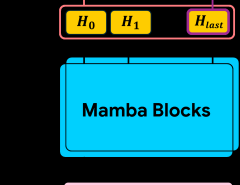Authors: Shengxin Zhuang, John Tanner, Yusen Wu, Du Q. Huynh, Wei Liu Xavier F. Cadet, Nicolas Fontaine, Philippe Charton, Cedric Damour, Frederic Cadet, Jingbo Wang
Published on: February 06, 2024
Impact Score: 8.22
Arxiv code: Arxiv:2402.03847
Summary
- What is new: First application of the Quantum Support Vector Machine (QSVM) to peptide classification, demonstrating its superiority over classical SVMs and other machine learning models in this task.
- Why this is important: Uncertainty about quantum advantages in machine learning when data is classical and finding practical applications for Quantum Machine Learning.
- What the research proposes: Applying QSVM to classify peptides as hemolytic or non-hemolytic, demonstrating better performance than classical approaches.
- Results: QSVM outperformed all classical SVMs and previous best results on the peptide classification task.
Technical Details
Technological frameworks used: Quantum Machine Learning
Models used: Quantum Support Vector Machine (QSVM)
Data used: Three peptide datasets
Potential Impact
Computational biology and therapeutic development sectors could greatly benefit from these insights, potentially disrupting current computational methods in these fields.
Want to implement this idea in a business?
We have generated a startup concept here: QuantumPeptideSafe.



Leave a Reply